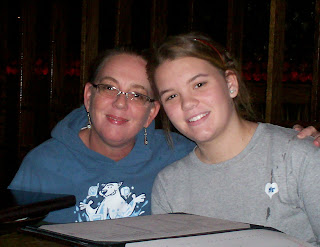Literacy Speaks Volumes: How Do Writers Communicate?
Literacy Speaks Volumes: How Do Writers Communicate?: Powerful communicators know that planning is the key to good writing. Planning helps writers develop their ideas and then communicate t...
This is a post from a year ago, and the message is still valid now on the eve of a new year.
This is a post from a year ago, and the message is still valid now on the eve of a new year.
This is a photo of me and my now twenty year old taken many years ago on New Year's Eve.
As a writer, I prefer to communicate in writing. While I have good speaking skills, I'm not a quick thinker. My husband can come up with some zingers in the blink of an eye, but I have to think on something before I can come up with something clever to say. Even then, cleverness usually eludes me.
I took this photo many years ago in the spring for a garden photo contest. I did not win.
Writing is my hobby as well as a way to make some extra income. When I am not writing, I am thinking about writing.
I'm fortunate that my day job is teaching writing to middle schoolers. Communicating in writing is the number one way to show our intelligence. Writing is how I determine if my students have mastered a skill or are able to use a specific writing strategy successfully.
The first thing that my students do in class is write for fifteen minutes. I always offer a prompt, but the students do not have to use it for their writing. I call it their daily pages. This is a limbering exercise for them to get those creative juices flowing. It starts the class with a specific writing routine. Many students tell me that they keep up this routine even after they leave my class.
I read aloud to my students each day so that they will hear good writing. I want them exposed to amazing word choice and sentence structures. I want them exposed to beautiful and powerful words and sentences and well organized paragraphs.
All of the mini lessons are focused on one aspect or quality of writing. Some teachers call them elements or traits of good writing. The lesson could be about generating writing ideas or where to put the comma when beginning a sentence with a clause or phrase. I do not stuff too much into these short daily lessons. I am a minimalist when it comes to my lessons.
Writing is personal, but it is also a way to be social. It is a means of activism. We show the world our personalities and share our beliefs through our writing.
I believe in the health benefits of writing and keeping a journal. The act of writing has kept me sane over the years. My mental health is so much stronger because of my personal writing habits.
I have favorite writers whose styles impress me and give me examples that I want to imitate in my own personal writing. I encourage my students to imitate their favorite writers. A fellow teacher calls them swagger sentences. I love that term and now use it with my students. I am constantly on the lookout for swagger sentences to share with my students.
Neil Gaiman can really swag with his sentences.
The four block method is a great way to organize a class period. The class begins with daily pages. Then I read aloud from an exemplar text. Afterwards, I teach a short lesson on a focused skill or strategy. The students always finish with an assessment of the teaching. I give summative assessments every two weeks. My students are expected to practice the skill or strategy each night for homework.









Comments
Post a Comment